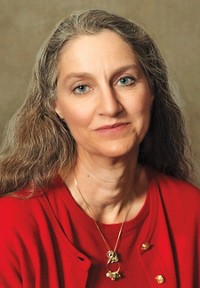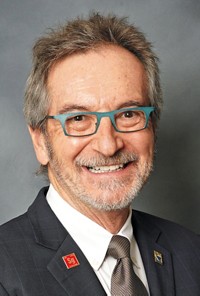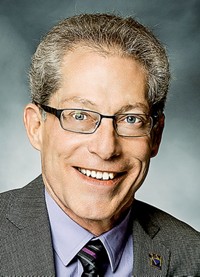Advertisement
Grab your lab coat. Let's get started
Welcome!
Welcome!
Create an account below to get 6 C&EN articles per month, receive newsletters and more - all free.
It seems this is your first time logging in online. Please enter the following information to continue.
As an ACS member you automatically get access to this site. All we need is few more details to create your reading experience.
Not you? Sign in with a different account.
Not you? Sign in with a different account.
ERROR 1
ERROR 1
ERROR 2
ERROR 2
ERROR 2
ERROR 2
ERROR 2
Password and Confirm password must match.
If you have an ACS member number, please enter it here so we can link this account to your membership. (optional)
ERROR 2
ACS values your privacy. By submitting your information, you are gaining access to C&EN and subscribing to our weekly newsletter. We use the information you provide to make your reading experience better, and we will never sell your data to third party members.
Policy
Of the Members, by the Members, for the Members
by Dennis Chamot, ACS Director-At-Large
November 7, 2005
| A version of this story appeared in
Volume 83, Issue 45
I often speak of the American Chemical Society as a membership organization, which it was from the very beginning and still is. I believe that that focus has been a major reason for our great success over the past century and a quarter and is essential for continuing success into the future. We would move too far from that focus, either in reality or in the perception of others, at our peril.
Our society was founded in New York in 1876, the nation's centennial year, by about three dozen chemists. Sixty-one years later, reflecting the growth and national character of the membership, as well as the Washington, D.C., location of the society's headquarters at the time, ACS reincorporated with a congressional charter, which we operate under to this day.
Today, by far the largest operations within the society, both in terms of cost and number of employees working on them, are Chemical Abstracts Service (CAS) and the Publications Division (Pubs). Either could be regarded as primarily a business, a service to the science, or a service to the membership. In fact, all three descriptions apply. CAS and Pubs generate significant revenues to help fund many other programs. CAS search engines are powerful drivers of advances in chemical research. Pubs, provider of many of the world's leading scientific journals, could not exist without the direct involvement of a large number of ACS members who serve as editors and reviewers (as well as authors, of course).
We must retain the character of an organization of, by, and for the members, in service to science, the public, and our profession.
But as I implied at the outset, perceptions matter. The very success of CAS and Pubs has made ACS by far one of the largest scientific organizations in terms of revenues (as well as costs, which is often overlooked-this is, after all, a nonprofit organization). There is a tendency in America to root for the underdog. How we are perceived is very important. Here is where the focus on membership remains significant. Let me give two recent examples.
Much of the early press coverage of the disagreement between ACS and the National Institutes of Health over the development of an NIH database that could directly compete with the CAS Registry did not enhance the image of ACS. I would argue that, while there were legitimate reasons for concern on the part of CAS, the perception in some people's minds was that this was not an effort to protect a very useful base of a service to all of science, created and owned by a volunteer membership organization, but rather it was seen as protecting a business against development of a free public service that would be a direct competitor in the marketplace. As of this writing, it looks like an amicable settlement to the disagreements will be arrived at eventually, one that should satisfy everyone's needs. But the lack of support in the media for the ACS position should give us pause.
The other example I would like to present is the open-access movement and Pubs. There are some in the science community who feel strongly that all scientific publications should be available to everyone for free, with the costs borne primarily by the producers of the papers. The Pubs position has been that it is better to have free access to the producers of the papers and cover the costs of production necessary to maintain high quality (including editing and review) through subscription fees paid by the users. In this case, there is wide recognition that ACS journals are produced with major input by society members, and that Pubs policies are influenced by member concerns. (For example, consider recent policy changes in handling archives for electronic journals.) I would argue that, because Pubs is seen as an active part of a membership organization, there was more of a willingness to engage in a debate among friends. The perception that Pubs's positions were merely corporate was less widespread.
There are many other programs within ACS that directly serve the membership, the science, and the community at large. They benefit tremendously from the active involvement of a large number of members who volunteer to serve in governance positions, to work for local sections and divisions, and to participate in committees and task forces that advise a hard-working and capable staff in a variety of activities. Many of our members volunteer to participate in the Legislative Action Network, or as Project SEED mentors, or to supervise student affiliate chapters because they see themselves as part of a community tied together through their membership in ACS.
We are expending a lot of effort in looking to the future and developing a long-term vision for the society. You may have already responded to the ACS member survey on this topic. For all the reasons I have mentioned here, above all, we must retain the character of an organization of, by, and for the members, in service to science, the public, and our profession.
Views expressed on this page are those of the author and not necessarily those of board.
More Online
ACS Comments, which appear in C&EN from time to time, are written by society officers and committee chairs. They are available on C&EN Online at www.cen-online.org/html/acscomments.html. Comments are archived back to 2000.









Join the conversation
Contact the reporter
Submit a Letter to the Editor for publication
Engage with us on Twitter